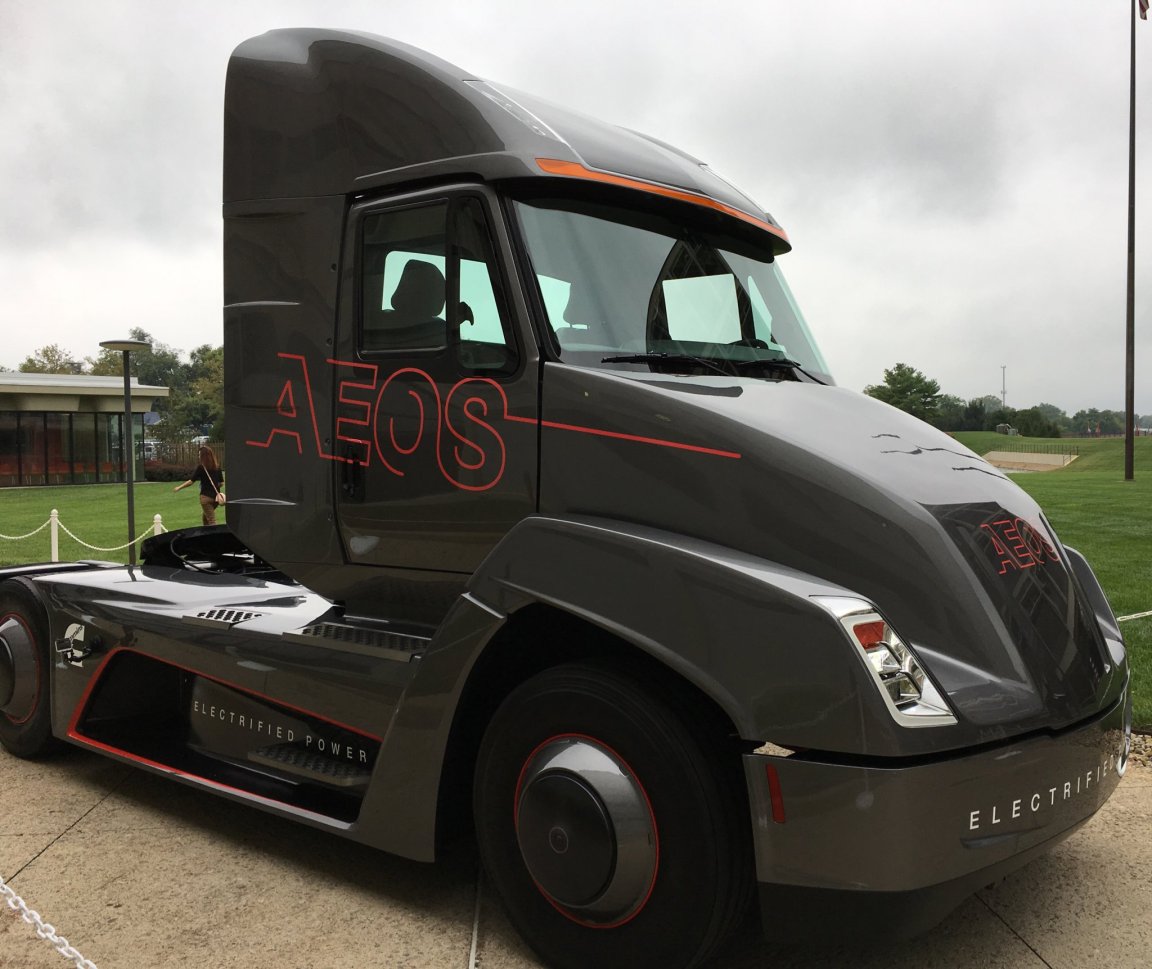Sign up to see the future, today
Can’t-miss innovations from the bleeding edge of science and tech
Beat Them to It?
Ahead of Tesla’s planned September launch of its highly-anticipated electric semi truck, American engine designer and manufacturer Cummins unveiled an electric concept truck . Dubbed the AEOS, the all-electric semi is part of the company’s efforts to develop environmentally-friendly technologies.
“These new technological innovations build on our 100-year legacy of bringing the best solutions to our customers, driving their success and meeting the evolving demands of their industries and markets,” Cummins CTO Jennifer Rumsey said at the event on Tuesday at the company’s Technical Center in Columbus, Indiana.
The AEOS. Image credit: Cummins
Elon Musk Talks About the Tesla Semi Truck at TED 2017 (Full Clip) | Inverse
The AEOS promises an assemblage of energy-saving features, beginning with an electric powertrain to match its 140 KWh battery pack. With a range of 161 kilometers (100 miles) on a single charge, which additional battery packs could extend to 483 kilometers (300 miles), the AEOS can haul about 22 tons (44,000 pounds) of cargo. It’s trailer roof can also be retrofitted with solar panels, adding an extra clean energy punch.
The Trucks We Want
While the AEOS is remarkable as it is, it might not be much of a competition for Tesla’s upcoming electric semi. For starters, the range doesn’t match Tesla’s, which is presumably capable of reaching 321-483 kilometers (200-300 miles) on a single charge. While both don’t yet match the 1610-kilometer (1000-mile) range of traditional semis, Tesla can certainly deliver more than the AEOS — the latter can work perfectly well for inner-city deliveries.
Then there’s the rumors about “platooning.” Supposedly, Tesla’s electric semi is meant to work as part of an autonomous fleet of electric trucks trailing one lead vehicle. As for how much cargo one Tesla semi can haul, there are no reports that hint on that yet.
VIDEO
Electric vehicles are beginning to dominate roads, beginning with passenger vehicles and now with delivery trucks. The goal is to have fully-electric (and ideally autonomous) trucks that can cover long-haul deliveries. Delivery trucks running on fossil fuels contribute about 23 percent of greenhouse gas emissions in the United States. So, with both Tesla and Cummins offering cleaner alternatives, it isn’t really a competition. It all boils down to how much both can help make roads greener.


